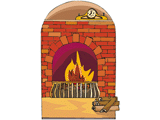"I want to know what were the steps by which
man passed from barbarism to civilization (Voltaire)"
|
What are our origins?
Where are we now?
Where are we headed?
Share your thoughts with us!
| |
Volume Five (The Renaissance)
"Four elements constitute Civilization -- economic provision, political organization, moral traditions, and the pursuit of knowledge and the arts. "
"I shall proceed as rapidly as time and circumstances will permit, hoping that a few of my contemporaries will care to grow old with me while learning. "
"These volumes may help some of our children to understand and enjoy the infinite riches of their inheritance."
"Civilization begins where chaos and insecurity ends." SAVONAROLA AND THE REPUBLIC
The Prophet
The Statesman
Literature: The Martyr
Architecture and Sculpture: The Republic and the Medici
Art Under the Revolution
In this volume the term "Renaissance" refers only to Italy. Will Durant studies the growth of industry, the rise of banking families like the Medici, the conflicts of labor and capital and considers the reasons why Italy was the first nation, and Florence the first city in Italy, to feel the awakening of the modern mind. He follows the cultural flowering from Florence to Milan, Mantua, Ferrata, Verona and Venice, Padua and Parma, Bologna, Rimini, Urbino, Perugia, Siena, and Naples.
In each city of Italy we witness a colorful pageant of princes, queeens, dukes, or doges -- of poets, historians, scientists, and philosophers -- of painters, sculptors, engravers, illuminators, potters, and architects -- of industry, education, manners, morals, crime, and dress -- of women and love and marriage -- of epidemics, famines, earthquakes, and death.
Dr. Durant draws vivid vignettes -- of Petrarch, Boccaccio, Cosimo de' Medici, Fra Angelico, Donatello, Beatrice and Isabella d'Este, Leonardo da Vinci, Piero della Francesca, Signorelli, Perugino, Giovanni Bellini, Giorgione, Aldus Manutius, Correggio, Alexander VI, Caesar and Lucrezia Borgia, Julius II, Leo X, Raphael, and Michelangelo.
The Renaissance, by recalling classic culture, ended the thousand year rule of the Oriental mind in Europe.
This volume, then, is about YOU. Join our group daily and listen to what Durant and the rest of us are saying. Better yet, share with us your opinions.
Trevor, you raise the toughest questions. In what context can I place Jesus so one can challenge his Jewishness. What did he do in his lifetime, as we know it, that was not consistent with Jewish customs? He railed against animal sacrifice by tossing the money changers out of the temple but in the end he became a very human sacrifice himself. Quite contradictory. He forgave a woman adulterous rather than stoned her to death. What else?

Help me on this one, folks. There must be other differences.
